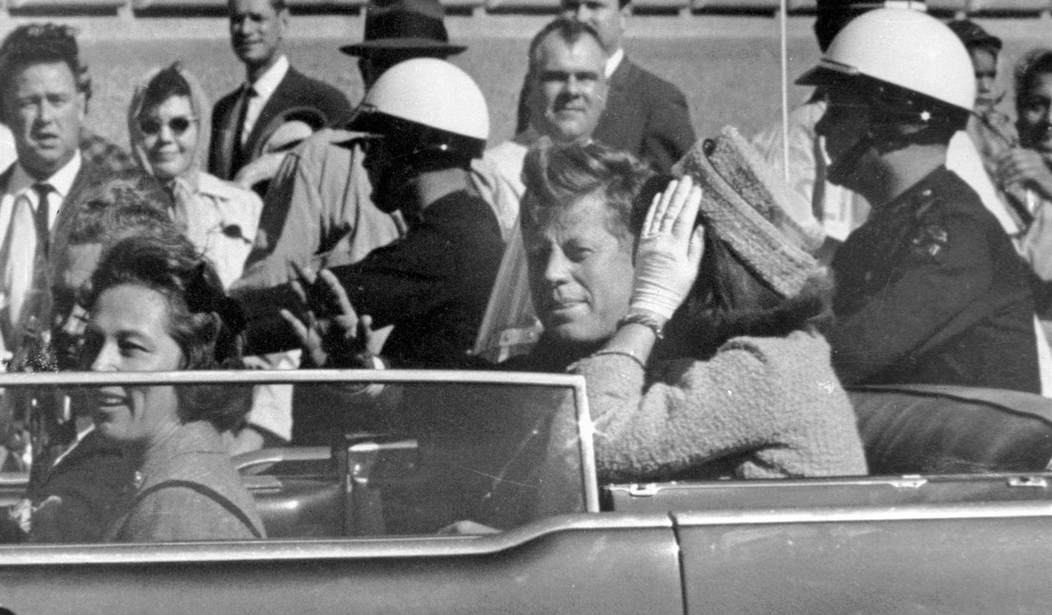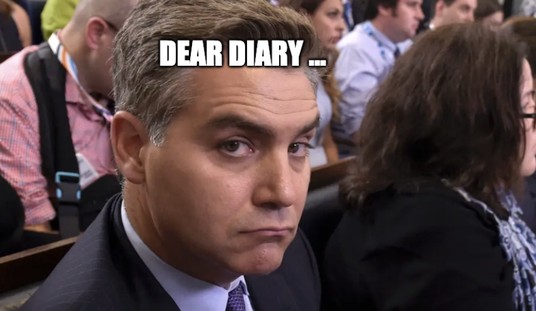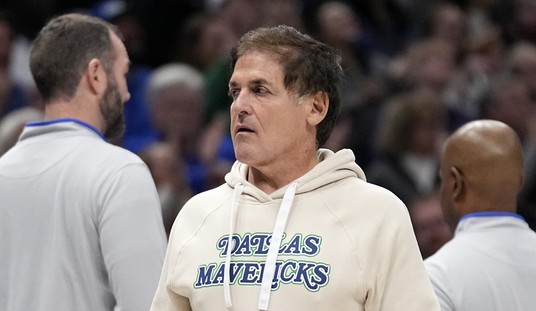This morning, I learned that Robert Kennedy Jr. was denied Secret Service protection:
Since the assassination of my father in 1968, candidates for president are provided Secret Service protection. But not me.
— Robert F. Kennedy Jr (@RobertKennedyJr) July 28, 2023
Typical turnaround time for pro forma protection requests from presidential candidates is 14-days. After 88-days of no response and after several…
As of this writing, there is a Community Note attached talking about when the obligation kicks in and I will talk about that in a minute. Let me just say for now that I doubt an actual lawyer wrote it. But I will note that there is precedent for giving Secret Service protection to a mere candidate seeking a nomination and giving such protection this long before the election. For instance, Barack Obama received Secret Service protection in May of 2007. At that point, he was not even the nominee for his party and, indeed, most people thought that Hillary Clinton was going to get the nomination. That would be the equivalent to giving a candidate protection in May of this year.
And I mean, he is a Kennedy, after all. That’s like being a teenaged character in the Final Destination movies.
Gallows humor aside, former Secret Service agent Dan Bongino had this to say on the subject and his language gets salty. Please note that he takes about thirty seconds to get to it:
Ex Secret Service Agent Dan Bongino @dbongino.
— ZZZ (@AskMeLaterOn) July 28, 2023
———————————————
Dan shares his thoughts about RFK @RobertKennedyJr being denied Secret Service protection as an active candidate… pic.twitter.com/BhPuxGvydV
For his part, Mr. Kennedy also Quote Tweeted this thread:
🧵 @RobertKennedyJr Should Receive Secret Service Protection
— Chief Nerd (@TheChiefNerd) July 29, 2023
This thread will explain why… pic.twitter.com/pRL3gQwct0
1) In June of 1968, following the assassination of presidential nominee Sen. Robert F. Kennedy, the Secret Service began protecting leading presidential nominees and their spouses. Just days after the assassination the Secret Service became responsible for the safety of five…
— Chief Nerd (@TheChiefNerd) July 29, 2023
1) In June of 1968, following the assassination of presidential nominee Sen. Robert F. Kennedy, the Secret Service began protecting leading presidential nominees and their spouses. Just days after the assassination the Secret Service became responsible for the safety of five candidates, and by the end of the 1968 campaign twelve candidates were protected by the Secret Service. The new responsibility was undertaken to maintain the integrity of the democratic process.
After all, in 1960 the American people made John Kennedy, Sr., the President of the United States and who decided Lyndon B. Johnson was going to be president, instead? One guy. And in 1968, Robert Kennedy, Sr., might have been able to win the Democratic Party nomination and become president of the United States, but one guy decided that wasn’t going to happen, either. That is an outrage in any republic. Power in a republic is supposed to come from the people, not some random nutball. And, while such assassinations can’t be prevented 100% of the time, it is important to try to prevent as many as reasonably possible.
(And if you believe either Kennedy was killed by a conspiracy, that is still an outrage against republican principles in a similar vein.)
2) The law authorizes Secret Service protection for major presidential and vice presidential candidates and their spouses within 120 days of the general presidential election. However, the evolution of the protective detail is based upon actual threats and acts of aggression…
— Chief Nerd (@TheChiefNerd) July 29, 2023
2) The law authorizes Secret Service protection for major presidential and vice presidential candidates and their spouses within 120 days of the general presidential election. However, the evolution of the protective detail is based upon actual threats and acts of aggression against both the highest public office in the land and those who seek the position.
3) History shows there is precedent for candidates receiving protection >120 days ahead of the general election.
— Chief Nerd (@TheChiefNerd) July 29, 2023
4) Donald Trump & Ben Carson were provided Secret Service protection 365 days before Election Day in 2015https://t.co/OHCd6weyMi
— Chief Nerd (@TheChiefNerd) July 29, 2023
5) Barack Obama was provided Secret Service protection 551 days before Election Day in 2007https://t.co/O1q4KEazOl
— Chief Nerd (@TheChiefNerd) July 29, 2023
6) John McCain was offered secret service protection at the same time 551 days before Election Day (and declined) in 2007https://t.co/hyr2zayMfH pic.twitter.com/ddNefZF855
— Chief Nerd (@TheChiefNerd) July 29, 2023
I forgot about that.
7) Ted Kennedy was provided Secret Service protection 410 days before Election Day in 1979https://t.co/1QXvEqLG5D
— Chief Nerd (@TheChiefNerd) July 29, 2023
8) RFK Jr is within the time range of the precedent set by the candidates above (465 days from Election Day) and is arguably under even greater threat given the Kennedy family’s tragic history of assassinations
— Chief Nerd (@TheChiefNerd) July 29, 2023
9) The Secretary of Homeland Security (DHS Sec. Alejandro Mayorkas) has the discretion and the ability to approve or deny Secret Service coverage to presidential candidates at any point in the campaign.
— Chief Nerd (@TheChiefNerd) July 29, 2023
10) Given that the Biden Administration began to censor RFK Jr within days of getting into the White House and is continuing that censorship even through last week’s censorship hearing, it is not surprising that a Biden appointee has denied a political opponent's request for…
— Chief Nerd (@TheChiefNerd) July 29, 2023
"...for Secret Service protection," that's what the rest of the Tweet says.
This Tweeter also makes an excellent point:
The 120 days refers only to spouses, not to candidates. There is no limit in the law. Here's what the law actually says:
— Anarresian (@anarresian) July 29, 2023
(7) Major Presidential and Vice Presidential candidates and, within 120 days of the general Presidential election, the spouses of such candidates.…
This person is correct. He or she cites 18 U.S.C. § 3056. First, that section says:
(a) Under the direction of the Secretary of Homeland Security, the United States Secret Service is authorized to protect the following persons:
Then it lists a bunch of people that the Secret Service is authorized to protect, including:
(7) Major Presidential and Vice Presidential candidates and, within 120 days of the general Presidential election, the spouses of such candidates. As used in this paragraph, the term ‘major Presidential and Vice Presidential candidates’ means those individuals identified as such by the Secretary of Homeland Security after consultation with an advisory committee consisting of the Speaker of the House of Representatives, the minority leader of the House of Representatives, the majority and minority leaders of the Senate, and one additional member selected by the other members of the committee.
So, first the Tweeter is correct to say that the 120-day period only applies to spouses. The commas make that clear. And it makes sense in context because four months before the general election for a candidate is ridiculous. So there is no time limit on when protection is offered. Second, the Secretary of Homeland Security is the one who makes the decision of who counts as a major Presidential or Vice Presidential candidate, not the committee set up in this law. The law only says that the Secretary of Homeland Security is required to consult with them, but the use of the word ‘consult’ implies that if he or she thinks they are wrong, he can ignore them and do what makes sense to him or her.
And the Community Note I mentioned above? Now, you know it is wrong. Here’s what it says:
Secret Service protection must be provided to major candidates within 120 days of the general election. Major candidates are determined by a committee consisting of the House Speaker, House Minority Whip, Senate Majority & Minority Leaders, and another member of their choice.
Well, I didn’t like The Last Jedi very much but this line fits:

Okay, not every word is wrong. They are right about who makes up that committee, but they are wrong about the 120-day period and wrong about the committee making the determination—instead of just consulting.
And it is true that they are citing the Secret Service website. It is frankly poorly written so that, if all you are looking at is the website, one might think that the 120 period applies to candidates and spouses. On the other hand, the website is very clear that the committee only has a consultation role. In any case, if you want to talk about what a statute says, go to the statute itself, first, and not what a mere website has said about it.
Really, we have to ask if anyone checked to make sure that the person who wrote that is a lawyer? Or is Community Notes letting non-lawyers talk about the law, and to do so incompetently?
In any case, the bottom line is this. Every political assassination is an offense against the right of the people to control their government. And the Biden administration has decided it won’t protect probably its most serious primary challenger against such a possibility. If anything should happen to Kennedy, they will have blood on their hands.
And I am not sure that outcome would bother them very much. It seems like this is just the latest example of the political weaponization of the government under Biden.

























